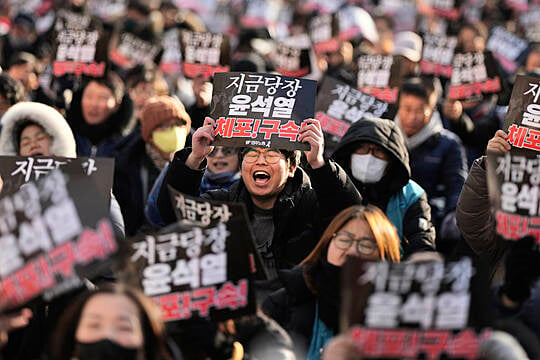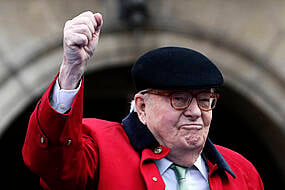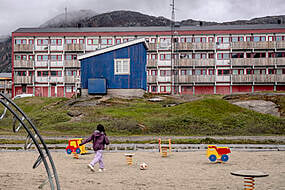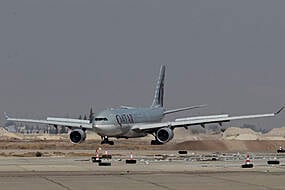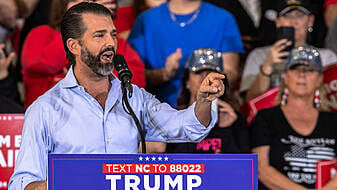South Korea’s anti-corruption agency has requested that police take over efforts to detain impeached president Yoon Suk Yeol after its investigators failed to bring him to custody following an hours-long stand-off with the presidential security service last week.
The agency and police confirmed the discussion on Monday, hours before the one-week warrant for Mr Yoon’s detention was to expire.
The Corruption Investigation Office for High-ranking Officials will likely seek a new court warrant to extend the window for Mr Yoon’s detention, according to police.
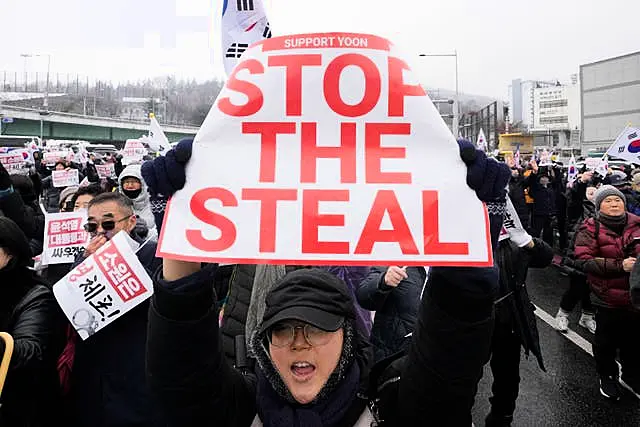
The Seoul Western District Court issued a warrant to detain Mr Yoon on December 31 after he dodged several requests by investigators to appear for questioning.
The anti-corruption agency, which leads a joint investigation with police and military investigators, is weighing charges of rebellion after the conservative president, apparently frustrated that his policies were blocked by a legislature dominated by the liberal opposition, declared martial law in December and dispatched troops to surround the National Assembly.
Hundreds of South Koreans rallied near Mr Yoon’s residence for hours into the early hours on Monday, wrapping themselves in silver-coated mats against the freezing temperatures.
It was their second consecutive night of protests, with demonstrators calling for his ouster and arrest.
Mr Yoon’s lawyers have challenged the detention and search warrants against the president, saying they cannot be enforced at his residence due to a law that protects locations potentially linked to military secrets from search without the consent of the person in charge — which would be Mr Yoon.

They also argue the anti-corruption office lacks the legal authority to investigate rebellion charges and that police officers do not have the legal authority to assist in detaining Mr Yoon.
Mr Yoon’s legal team has said it will file complaints against the anti-corruption agency’s chief prosecutor, Oh Dong-woon, and approximately 150 investigators and police officers involved in Friday’s detention attempt, which they claim was unlawful.
The team said it would also file complaints with public prosecutors against the country’s acting defence minister and police chief for ignoring the presidential security service’s request to provide additional forces to block the detention attempt.
The anti-corruption agency, which leads a joint investigation with police and military investigators, has been weighing charges of rebellion after Mr Yoon declared martial law and dispatched troops to surround the National Assembly. Lawmakers who managed to get past the blockade voted to lift martial law hours later.

Mr Yoon’s presidential powers were suspended after the opposition-dominated National Assembly voted to impeach him on December 14, accusing him of rebellion, and his fate now lies with the Constitutional Court, which has begun deliberations on whether to formally remove Mr Yoon from office or reinstate him.
Dozens of anti-corruption agency investigators and assisting police officers attempted to detain Mr Yoon on Friday but retreated from his residence in Seoul after a tense stand-off with the presidential security service that lasted more than five hours.
After getting around a military unit guarding the residence’s grounds, the agency’s investigators and police were able to approach within 218 yards of Mr Yoon’s residential building but were stopped by a barricade comprising around 10 vehicles and approximately 200 members of the presidential security forces and troops.
The agency said it was not able to visually confirm whether Mr Yoon was inside the residence.
The agency has urged the country’s acting leader, deputy prime minister Choi Sang-mok, to instruct the presidential security service to comply with their execution of the detainment warrant.
Mr Choi has yet to publicly comment on the issue.
In a video message on Sunday, Park Jong-joon, chief of the presidential security service, hit back against criticism that his organisation has become Mr Yoon’s private army, saying it has legal obligations to protect the incumbent president.
Mr Park said he instructed his members to not use violence during Friday’s stand-off and called for the anti-corruption agency and police to change their approach.
Mr Park and his deputy defied summonses on Saturday from police, who planned to question them over the suspected obstruction of official duty following Friday’s events.
Staff from the presidential security service were seen installing barbed wire near the gate and along the hills leading up to Mr Yoon’s residence over the weekend, possibly in preparation for another detention attempt.
